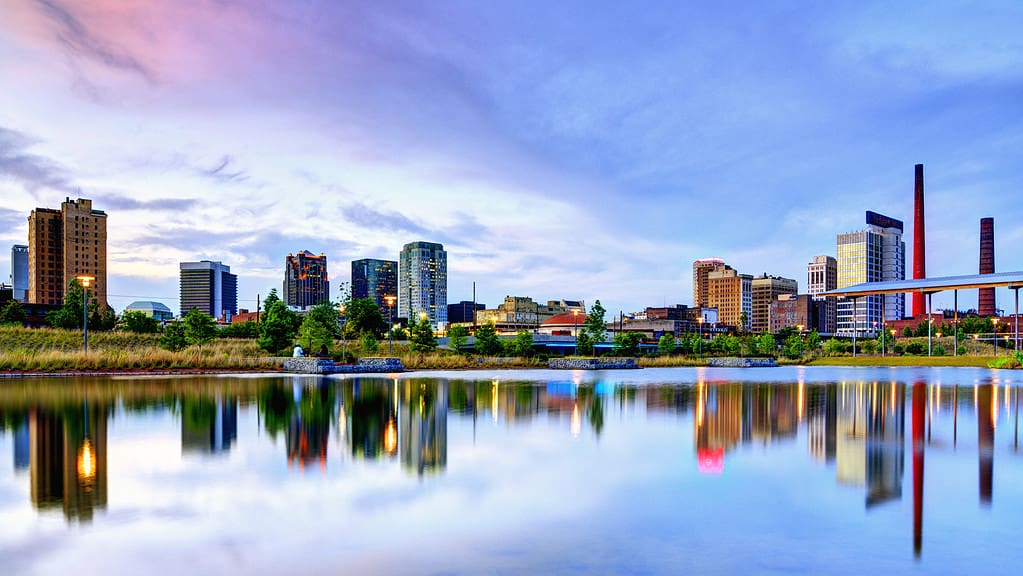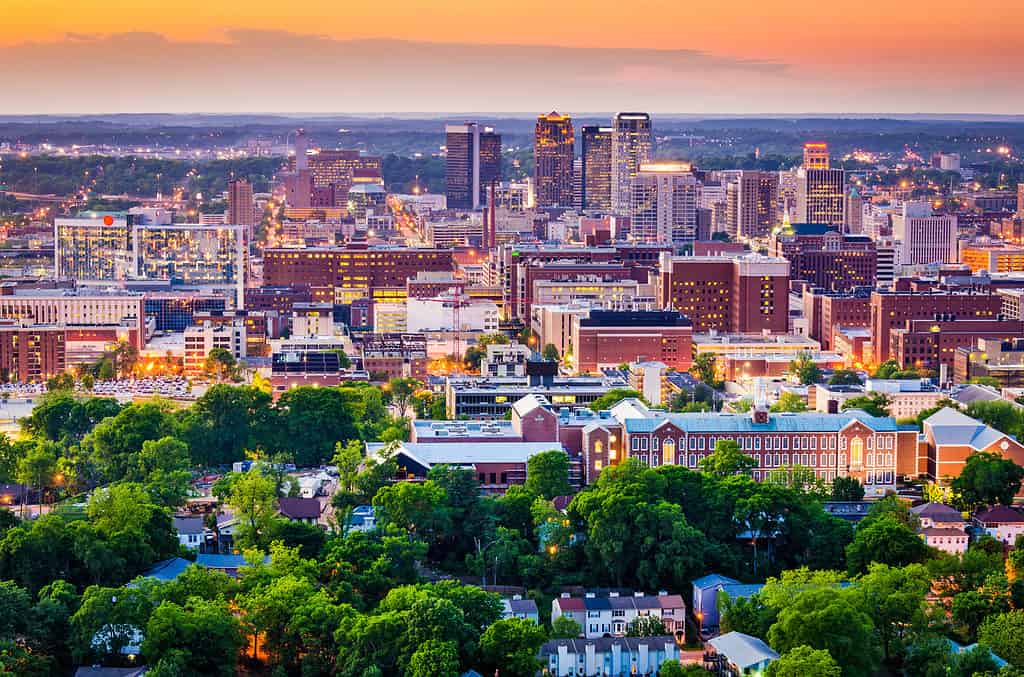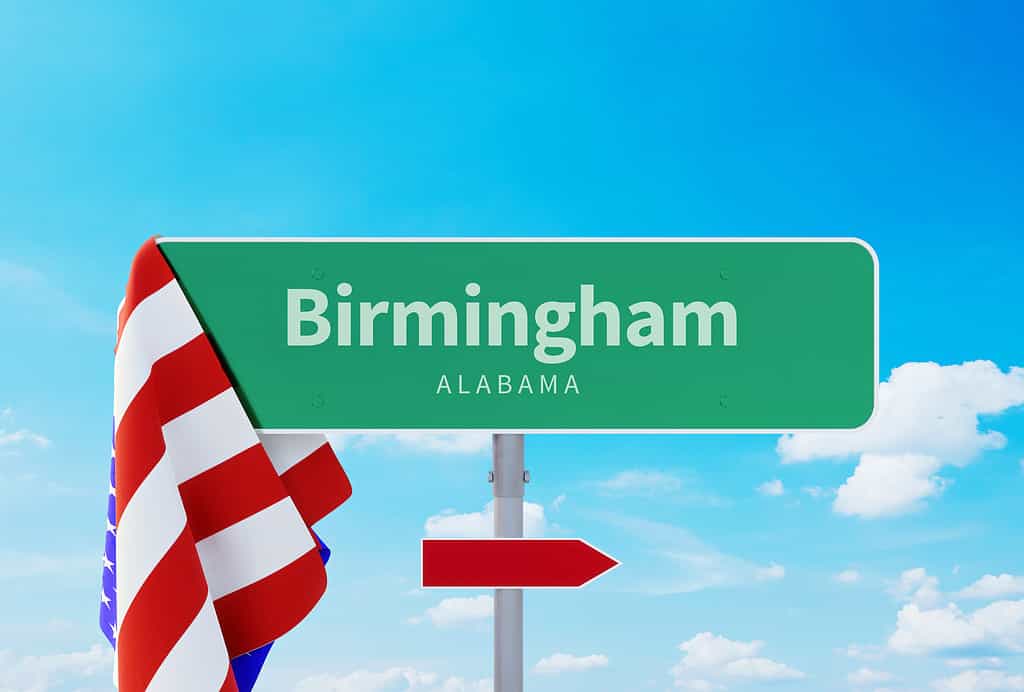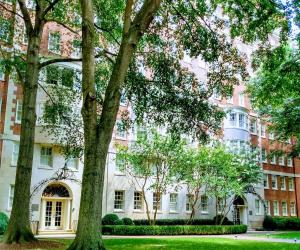Beware of Alabama's Dirtiest City
Alabama has a lot to offer, from southern hospitality to sandy beaches. Alabama is the home of the Civil Rights era and many historical novelists. Plenty of culture and dining exists in cities like Birmingham, Mobile, and Montgomery. So, how do these and other cities in the state stack up? Regarding quality of living, it’s worth knowing which ones have the worst air quality, pollution, and overall get poor marks for dirtiness. Birmingham has a reputation as the dirtiest city in Alabama. Find out why.
Why is Birmingham Dirty?

Surveys find that the living conditions in Birmingham, Alabama leave something to be desired.
©SeanPavonePhoto/iStock via Getty Images
Why is Birmingham considered to be dirty? In a recent study by Lawnstarter, American cities were ranked for pollution, living conditions, infrastructure, and consumer satisfaction. The study based its findings on publicly available data and calculated average scores for 152 cities. In the study, Birmingham ranks 13th place for overall dirtiest.
So how did the city get this score? When it came to the study’s metrics on living conditions, Alabama ranks as the third dirtiest of all the cities. The city allegedly has a large share of overcrowded homes with signs of cockroaches, mice, and mold. The study even takes into account the amount of homes that have no plumbing or kitchen facilities. The survey also reports that Birmingham has a high amount of residents living per square mile, making the city’s population extremely dense.
Birmingham’s Pollution History

Birmingham is a center for industry, which contributes to the pollution problem.
©Sean Pavone/Shutterstock.com
The good news is that Birmingham’s problem with pollution is improving. Back in 2020, the city ranked as having the worst air quality in all of Alabama. The American Lung Association’s 2020 State of the Air report even ranked the city in 14th place of all cities for year-round particle pollution. But in the updated 2023 report, Birmingham isn’t even in the top 25 cities on the list.
Birmingham’s former air pollution problems are down to a few factors. In the last century, the city became well-known as a hub for industries such as steel production, mining, and manufacturing. These industries can lead to high levels of pollutants and particulate matter in the air. But over the last few decades, Birmingham worked diligently on its air pollution problem. Since then, new regulations reduce emissions and some large industrial facilities have closed down, all leading to better air.
However, Birmingham’s air quality problems can also be chalked up to geography and temperature. Because the city sits in a valley amid the Appalachian Mountains, air pollutants and paritculate matter are more easily trapped. The hot, humid summers of Birmingham can lead to an increase in pollution build-up. Temperature inversions can trap pollution at ground level.
Birmingham currently ranks in 94th place for air pollution on Lawnstarter’s survey, showing the conditions there truly are getting better.
Impact of Birmingham’s Living Conditions

The residents of Birmingham live with various impacts from the pollution and dirt in the city.
©4-Your-Eyes-Only/iStock via Getty Images
Though Birmingham doesn’t rank as high on Lawnstarter’s survey for pollution as several other cities, there is still work to be done in this area. According to the American Lung Association, Birmingham continues to have some of the worst air quality in the entire Southeast.
Why is this a concern? There can be long-term health problems when exposed to high levels of smog and soot, the types of pollution that affect Birmingham. Some of the health concerns associated with pollution include asthma, cardiovascular damage, developmental and reproductive harm, and even lung cancer and premature death. Particularly at risk are children, the elderly, those who are pregnant, and people who have a chronic disease.
Though Birmingham continues to trend in the right direction when it comes to better air quality, the city still has a way to go toward better living conditions for its residents. That includes working on creating a cleaner city for all who live there.
The photo featured at the top of this post is © Birmingham/ via Getty Images









